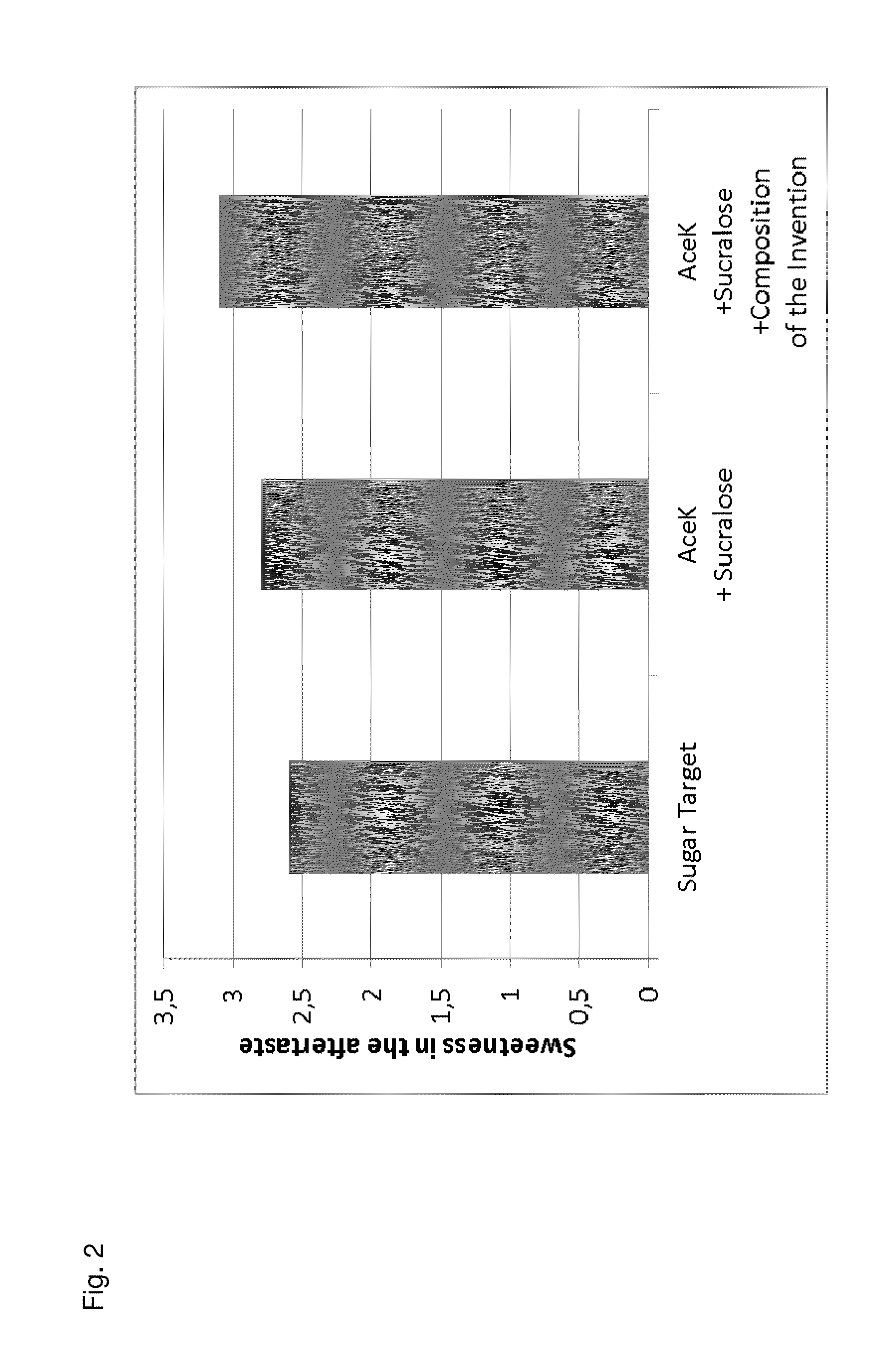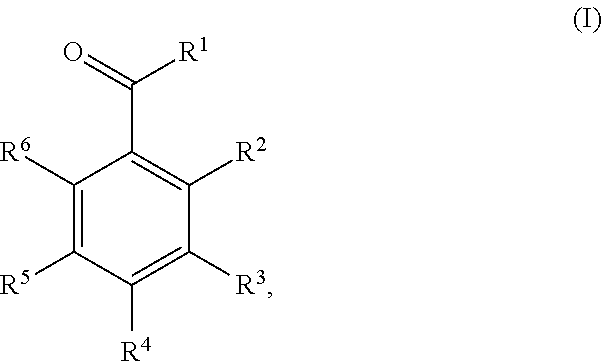Taste-Masking Compositions, Sweetener Compositions and Consumable Product Compositions Containing the Same
a technology of compositions and sweeteners, applied in dairy products, food preparation, food science, etc., can solve the problems of health problems, many non-caloric or low-caloric sweeteners have unpleasant taste features, and negatively affect the overall flavor of the respective consumable produ
- Summary
- Abstract
- Description
- Claims
- Application Information
AI Technical Summary
Benefits of technology
Problems solved by technology
Method used
Image
Examples
examples
Taste and Spit Assay with the Compositions X of the Invention
[0840]The following Examples are merely specific embodiments of the present invention and are intended to illustrate but not to limit the invention.
A. Taste and Spit Assay with Regard to Bitter Aftertaste / Sweetness in the Aftertaste: Using a Panel of 11 Trained Sensory Evaluators
examples 1 and 2
1. General Test Conditions
[0841]All tests were conducted under controlled and standardized conditions based on international norms (DIN 10962 and ISO 8589). Room temperature and humidity (20° C. and 40-70% relative humidity) were constantly tracked. Air was constantly exchanged.
[0842]Panelists were seated in sensory test cabins in order to allow undisturbed individual assessment. The lighting was identical for each panelist, flexible from red-light to full day-light condition.
[0843]All samples were presented according to a fully balanced experimental design. The samples were prepared by a trained laboratory assistant.
[0844]35 ml of the samples were served in clear plastic cups labelled with random three digit blinding codes. All beverages were measured at a serving temperature of 6.0° C. to 8.0° C. The data was collected on paper (in order to be quick and straight forward) along with a digital stop-watch.
[0845]Neutralization between samples was guaranteed by both time (breaks of min...
example 1
3. Example 1
Taste and Spit Assay with Regard to Bitter Aftertaste
[0851]The taste of a sample of a sweetener composition comprising acesulfame potassium, sucralose and the composition X of the invention with regard to bitter aftertaste was assessed by using a panel of trained sensory evaluators experienced in the descriptive sensory analysis. 11 Panelists were asked to taste the quality of single samples of 35 ml volume.
[0852]The following liquids have been assessed:[0853]Sample 1: A preparation containing Sugar Target (saccharose 10 Brix) and water[0854]Sample 2: A preparation containing 500 wppm acesulfame K and water[0855]Sample 3: A preparation containing 500 wppm acesulfame K, 75 wppm sucralose and water[0856]Sample 4: A preparation containing water and the following ingredients:
ConcentrationIngredient(wppm)Acesulfame K500Sucralose75Naringin5.14-Methoxy salicylaldehyde0.00025Syringaldehyde0.1(R)-5,6-Dihydro-6-pentyl-2H-pyran-2-one0.02(massoia lactone)cis / trans-whiskey lactone0.0...
PUM
 Login to View More
Login to View More Abstract
Description
Claims
Application Information
 Login to View More
Login to View More - R&D
- Intellectual Property
- Life Sciences
- Materials
- Tech Scout
- Unparalleled Data Quality
- Higher Quality Content
- 60% Fewer Hallucinations
Browse by: Latest US Patents, China's latest patents, Technical Efficacy Thesaurus, Application Domain, Technology Topic, Popular Technical Reports.
© 2025 PatSnap. All rights reserved.Legal|Privacy policy|Modern Slavery Act Transparency Statement|Sitemap|About US| Contact US: help@patsnap.com



